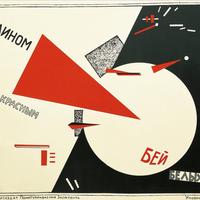70.
70. STAND
70. TO SET - TO STAND.
70. STAND
70. PADRÃO
70. STAND
СТАВИТЬ - СТОЯТЬ
put|stand
STAND
70.
70
СТАВИТЬ – СТОЯТЬ
put|
STEAL - STAND
ベット-スタンド
Еще два русских глагола часто путают иностранцы: «ставить» и «стоять».
another||Russian|verbs|often|confuse|foreigners|||
Another two Russian verbs are often confused by foreigners: "put" and "stand".
さらに2つのロシア語の動詞、「置く」と「立つ」は外国人によって混乱することがよくあります。
Mais dois verbos russos são frequentemente confundidos por estrangeiros: “colocar” e “ficar”.
Мы используем «ставить» или «поставить», когда мы ставим или переставляем какую-т о мебель, вазу с цветами, книги в шкаф, то есть когда мы совершаем активное действие, движение с каким-то предметом, например:
we|use||or|put|||put||move|what|some|some|furniture|a vase||with flowers|books||into the wardrobe|some||||are performing|an active|an action|movement||with (with some)||with (with some)|for example
We use “set” or “put” when we set or rearrange some kind of furniture, a vase with flowers, books in a closet, that is, when we perform an active action, movement with some object, for example:
「セット」または「置く」は、ある種の家具、花瓶、本をクローゼットに入れたり並べ替えたりするとき、つまり、アクティブなアクション、オブジェクトを使った動きを実行するときに使用します。たとえば、次のようになります。
Usamos “colocar” ou “colocar” quando colocamos ou reorganizamos alguns móveis, um vaso de flores, livros em um armário, ou seja, quando realizamos uma ação ativa, um movimento com algum objeto, por exemplo:
Давай поставим стол к окну.
let's|put|the table|by (indicating location)|to the window
Let's put the table to the window.
Mettons la table à la fenêtre.
窓際にテーブルを置いてみましょう。
Vamos colocar a mesa perto da janela.
Каждый день она приносит цветы из сада и ставит их на стол.
every|every day||brings|flowers||from the garden||puts|them||
Every day she brings flowers from the garden and puts them on the table.
彼女は毎日庭から花を持ってきてテーブルに置きます。
Todos os dias ela traz flores do jardim e as coloca na mesa.
Мы используем глагол «стоять», когда мы говорим о ситуации, о каком-то определённом положении:
||the verb||||speak||a situation||about (with 'о')||a certain|about a certain position
We use the verb "to stand" when we talk about a situation, about a particular position:
状況や特定の位置について話すときは、「立つ」という動詞を使用します。
Usamos o verbo “stand” quando falamos de uma situação, de uma determinada posição:
Стол стоит у окна.
|is||the window
The table is at the window.
テーブルは窓際にあります。
A mesa fica perto da janela.
Цветы стоят на столе.
|are||on
Flowers are on the table.
花はテーブルの上にあります。
As flores estão na mesa.
А теперь послушайте и почитайте несколько новых примеров с этими глаголами:
and||listen||read|several|new|examples||with these|with these verbs
Now listen and read some new examples with these verbs:
次に、これらの動詞を使用していくつかの新しい例を聞いて読んでください。
Agora ouça e leia alguns novos exemplos com estes verbos:
Куда ты поставил книжный шкаф?
where|you|put|the book|
Where did you put the bookcase?
本棚はどこに置いたの?
Onde você colocou a estante?
Книжный шкаф стоит в моём кабинете.
||||in my|in
The bookcase is in my office.
私のオフィスには本棚があります。
Они купили новый диван и теперь ставят его в гостиную.
|bought||sofa|||are placing|||the living room
They bought a new sofa and now put it in the living room.
彼らは新しいソファを購入し、現在それを居間に置いています。
Новый диван стоит сейчас в гостиной напротив телевизора.
|||now||the living room|opposite|the TV
A new sofa is now in the living room opposite the TV.
新しいソファは現在、テレビの向かいのリビングルームにあります。
O novo sofá está agora na sala em frente à TV.
Какие задачи ты ставишь перед собой в этом году?
what|goals||set|for (in front of)|yourself||this|this year
What tasks do you set for yourself this year?
Quelles tâches vous fixez-vous cette année?
今年はどのようなタスクを自分で設定しますか?
Quais são suas metas para este ano?
Поезд стоит на этой станции только 5 минут.
the train|||on this|at this station|only|minutes
The train is at this station only 5 minutes.
電車はこの駅にたった5分で止まります。
O trem pára nesta estação por apenas 5 minutos.
Кто-то стоит перед моим домом.
someone||||my|in front of (with 'стоит перед ...')
Someone is standing in front of my house.
誰かが私の家の前に立っています。
Alguém está parado na frente da minha casa.
По нормам русского языка здесь надо ставить запятую.
according to|according to (the)|Russian|of the (with 'русского')|here|is required||a comma
According to the norms of the Russian language here should be a comma.
ロシア語の規範によれば、ここではコンマを使用する必要があります。
De acordo com as normas do idioma russo, uma vírgula deve ser colocada aqui.
Мой дом стоит на берегу реки.
my|house|||on the bank|the river
My house is on the river bank.
私の家は川のほとりにあります。
Minha casa fica na margem do rio.
(Написано Евгением40 для курса "Русский с нуля", 2014)
written|by Evgeny||for the course|Russian||from scratch
(Written by Evgeniy40 for the course "Russian from scratch", 2014)

